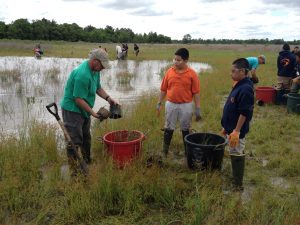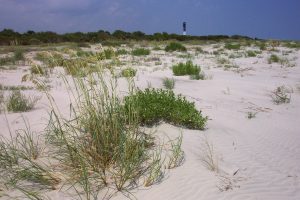Ninety one percent of seafood consumed in the U.S. is imported, and half of that is from aquaculture. With environmental concerns and a growing population, domestic aquaculture will be necessary to meet food supply needs and avoid the unsustainable harvesting of decreased wild fish stocks. Students will shape this future; and learning about fisheries and food production is key to raising the next generation as informed consumers and a trained workforce. However, aquaculture and aquaponics curriculum is not typically available for U.S. schools. Misconceptions about current aquaculture practices and consumption of farmed seafood exist and students are less likely to consider careers they are unfamiliar with.
USC Sea Grant developed the Food for Thought Aquaponics program in partnership with schools in Los Angeles, OurFoods Aquaponics, and USC Wrigley Institute for Environmental Studies as a project-based learning approach to increase student knowledge of aquaponics and aquaculture food options and provide a deeper understanding of core science topics. Aquaponics is a system that combines aquaculture and hydroponics; it is a model of sustainable urban farming that uses little water and produces no waste. USC Sea Grant led teacher training workshops, curriculum development, and program implementation at the partner schools.
Food for Thought was implemented at ten Los Angeles area schools; engaging 27 teachers and serving more than 850 students. Students raised fish and plants in their classroom: feeding; monitoring; adjusting water quality; monitoring growth; and managing disease. Two lesson plans were completed and students increased their knowledge and skills in a variety of core topics including engineering, technology, fish biology, water quality, fish husbandry, math, sustainable aquaculture practices, and ways to evaluate human impacts on the ocean. The successful program is continuing at the initial schools and expanding into additional schools.


